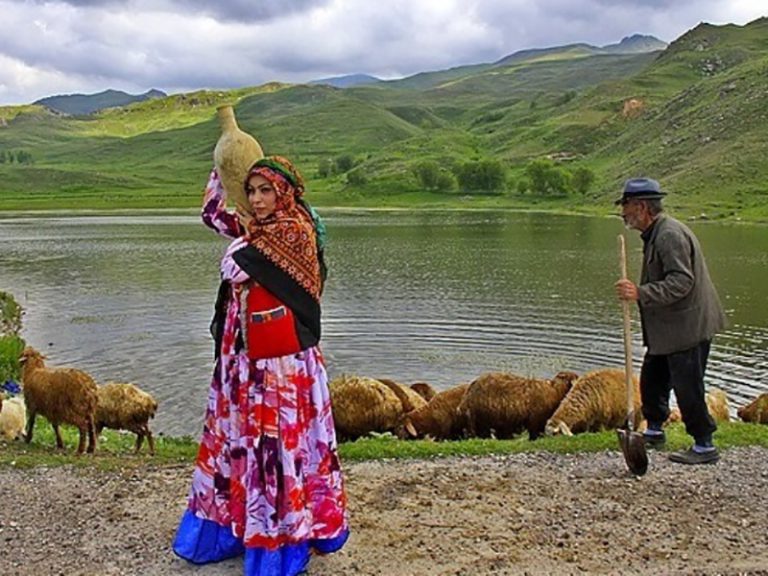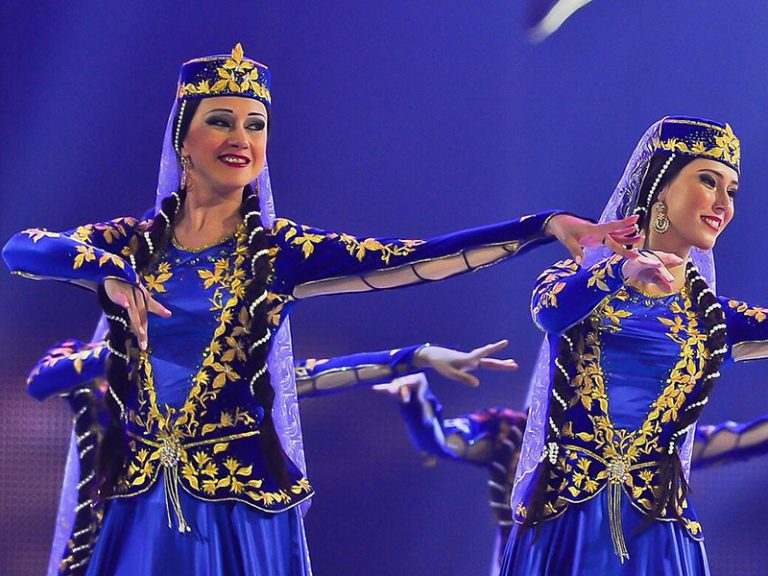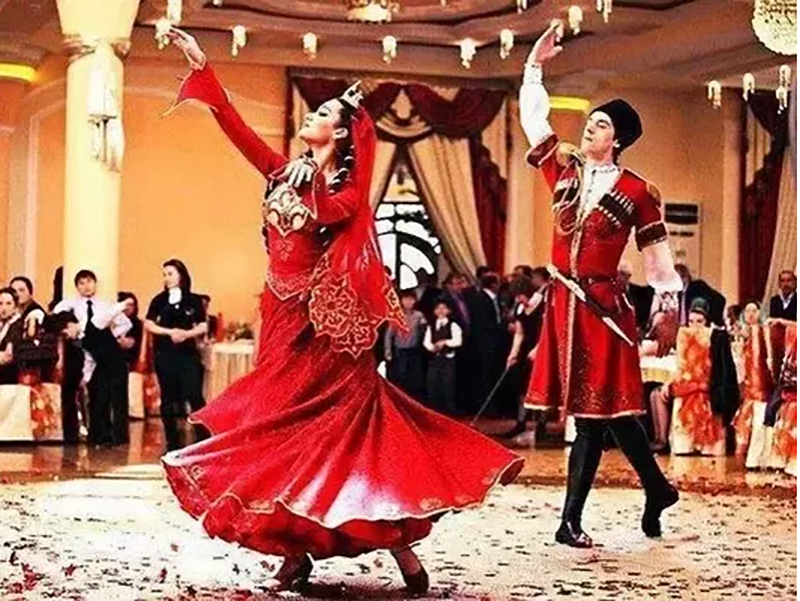Traditional clothing in East Azerbaijan, more than any cultural issues has been under rapid changes. Today, only among local villagers and nomads this local clothing can be seen. Geographic condition, environment and climate, lifestyle, social condition, economic condition, technological advances, as well as religious and customs of different communities are important factors affecting the uniform and clothing in different communities. Local clothing of famous tribes in East Azerbaijan, like Shahsavand and Arasbaran is one of the most cultural attractions.

Traditional costumes of Azerbaijanis are very beautiful and original. Female dresses are decorated with intricate embroidery trimmed with beautiful “gold” bands. Women’s wear is made basically of silk and velvet. The style reflected the marital status and age of the owner. A young girl’s wear noticeably differed from a married women’s. Young women dressed the most brightly and elegantly. Menswear is also very original. It emphasizes their courage and should not be too tight to constrain swift movements.

Men and women clothing are divided into 3 parts: caps, clothing and footwear. Skullcap, scarf, shawl, headbands, scarves, colorful scarf were the most common rural and tribal womans clothing. Long shirts, long and short skirts, vest, jacket with velvet and cashmere fabrics are the womans clothing. Womans foot wear had different types, like socks, slippers (shoes without heels), Qundara (a single cheek leather shoes in wedding parties). Men also had different types of hat, in Turkish they are called Burk or Papakh and were included of felt had and skullcap. Mens clothing were included of white shirts, Panjeh (sort of clothing such as coats), sheep skin and suite. Dolama (special kind of boots) are also a variety of tribal and rural men of East Azerbaijan.

